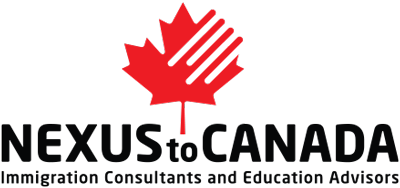As Canada continues to solidify its position as a global education hub, the landscape for international students and their families continues to evolve with new immigration regulations. These changes imply a commitment to address the changing needs of both international students and the country. Canada’s Immigration Minister Marc Miller announced on January 22, 2024, new changes to immigration regulations regarding future international students. To access the official link, you can click here.
These changes represent new challenges and opportunities for international students with the intention to immigrate to Canada, from new specific requirements for study permit applications, eligibility limits, as well as improvements in opportunities after graduation. Now, if you wish to delve into more detail and explore your specific immigration options as a future international student, do not hesitate to book a consultation with us so we can provide you with a more complete and personalized assessment according to your particular needs and situation.
It is important to note that these changes do not affect international students who are already in Canada; international students applying for extensions of their study permits; or international students with study permit applications already approved and soon to arrive in Canada, nor their accompanying dependents.
1. New cap limit temporarily established for study permits to be approved during the years 2024 and 2025.
For 2024, a maximum of 360,000 study permits will be issued, which represents a decrease of 35% compared to 2023.
This cap limit will be allocated proportionally according to the population density of provinces and territories. This means that provinces with greater demand and population density, such as Ontario, will see a much more significant reduction in said quota (it is estimated to be close to 50%).
The following two scenarios are not included within said limit:
– Master’s and PhD students, and primary and secondary education levels.
– Students whose study permits have already been approved.
– Applications for extension of study permits.
2. An Attestation Letter is required as a new requirement in applications for study permits
In order for the Government of Canada to ensure compliance with these cap limits at the provincial and territorial level, a new mandatory requirement for study permit applications came into effect as of January 22, 2024, which corresponds to an attestation letter. This new requirement is a certification that must be issued by the respective province, accepting the international student who has been admitted by an academic institution located in said province.
The provinces and territories have a deadline until March 31, 2024, to develop and establish their respective processes for issuing said certification. Until this happens, no student wishing to pursue undergraduate or postgraduate studies will be able to apply for a study permit.
2.1 Exceptions.
Only in the following cases will you be exempt from complying with this Attestation Letter requirement:
– Applicants to study master’s degrees, PhD, or other programs of this same level.
– Applicants of extensions of their respective study permits.
– Minors with the intention of studying at the primary or secondary level.
3. Only spouses or Common-law partners of master's or PhD students will be eligible to obtain an open work permit.
In other words, those spouses or common-law partners of international students admitted to undergraduate or graduate programs, different to master’s or PhD, will not continue to be eligible for this open work permit.
4. Changes to the Post-Graduation Work Permit (PGWP):
4.1 Eligibility
As of September 1, 2024, international students who pursue study programs at private Academic Institutions with curricular licensing arrangements with Public Institutions will no longer be eligible to obtain a Post-Graduation Work Permit (PGWP).
Under curricular licensing agreements, international students pursue studies at a private academic institution that is licensed to teach a curriculum from a designated public institution. However, according to the new regulation, these students will no longer be eligible for a Post-Graduation Work Permit (PGWP) as of September 1, 2024.
4.2 All Post-Graduation Work Permits (PGWP) for graduates of master's degrees, PhD and other short studies at this same level, will be issued with a validity of three (3) years
International students graduating from master’s, doctoral and other short programs at this level, regardless of the duration of their studies, will be eligible to obtain a Post-Graduation Work Permit (PGWP) that will be valid for three (3) years. This represents a positive change, given that under previous regulations, the validity of this permit was strictly tied to the duration of the study program.
If you wish to dive into more detail and explore your specific immigration options as a future international student, do not hesitate to book a consultation with us so we can provide you with a more complete and personalized assessment according to your particular needs and situation.






